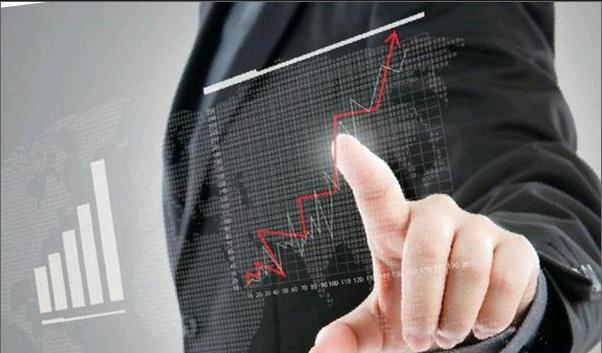Should We Trust Economists? 经济学家可信吗?
2014-01-07



Imagine you are the Royal Physician of England some time during the 14th century. The prince is sick, and youve been summoned to help. You call in two experts for advice. The first says: “Use leeches1) to suck out the evil humors2).” The second says: “No, you must bleed him to get the evil humors out.” They start to argue, insulting each other in nasty epistles3). “Leech guy is secretly working for the French!” alleges Bleeding Guy. “Bleeding Guy just wants the prince to die because the prince wanted higher taxes on the nobles!” Leech Guy fires back.
Whats the right move? Well, in an ideal world, you would go and get 999 patients who have illnesses similar to the princes and give them all a variety of household substances, such as bread mold4). Then you would take careful note of who died and use statistical analysis to figure out which household substances cured disease. Thus, you would discover penicillin5) and invent modern medicine.
Sadly, this is not what you do, because a) if you proposed it, you would be led off to the dungeons6) and beheaded b) its the 14th century and you have no concept of the scientific method and c) you dont really have the right tools for that experiment, anyway. Instead, its bleeding or leeches. So you take your best guess and you pray youre right.
The economic situation we find ourselves in today is a little bit like the example above. Everyone knows that its a bad thing when factories sit gathering dust and potential workers sit idle on their couches. But the best “experts” that we have—academic economists—are in generally ill repute. Surveys have shown that the public has very little confidence in their predictions. They argue bitterly on op-ed pages7) and cant seem to agree on the most basic issues. So are we making a mistake putting our faith in economics? Are economists themselves just charlatans8), to be scorned as medieval cranks9)? Or for all10) their flaws, are they really the best experts we have? I dont have a definitive answer, just like there is no good answer to the problem of the Royal Physician. But having gone through an economics PhD, I do know a few things that I think the public should realize about the field.
To start, we need to talk briefly about what it is economic theorists do. Essentially, they make models, which are mathematical tools that are supposed to describe how the economy functions. The problem is that economists havent really built a model of the whole economy that works. A lot of smart people have spent a lot of time creating tools with names like “dynamic stochastic general equilibrium11).” But as of this moment, those models cant really forecast the economy like our meteorologists12) can forecast the weather. Furthermore, they contain a lot of obviously wrong assumptions. To give just one example, many of the models stipulate13) that companies are only allowed to change their prices at random times! Crazy, right? Economists include things like that to make the models easier to use, and they hope that those zany14) assumptions are actually decent approximations to the way the world really works. But even with these kludges15) in place, none of the existing models can do much to predict the economy.
Theory isnt the only problem. Economists dont really have good enough data to understand how the economy works, either. With chemistry or biology, you can put things in a lab and test them out with controlled experiments. With microeconomics—the study of specific markets—you can do something similar. But with macroeconomics—the study of the economy as a whole—you cant put countries and entire economies in a lab; all you can do is sit there and watch history go by, and try to deduce some patterns. But often enough, those patterns vanish just as soon as you think youve found one.
Just as it doesnt have their caliber16) of data, macroeconomics also lacks the kind of scientific culture enjoyed by biology and chemistry. In the hard sciences17), models are built to explain data; thats their only purpose. But in econ, models are often used simply as storytelling devices to explain an idea about how the world might work.
The best economists are well aware of their ignorance. During his recent graduation speech at Princeton, Federal Reserve Chairman Ben Bernanke18) half-joked to the crowd that “Economics is a highly sophisticated field of thought that is superb at explaining to policymakers precisely why the choices they made in the past were wrong. About the future, not so much.” Greg Mankiw19), one of the worlds most famous macroeconomists put the sentiment this way in a 2011 New York Times column:
“After more than a quarter-century as a professional economist, I have a confession to make: There is a lot I dont know about the economy. Indeed, the area of economics where I have devoted most of my energy and attention—the ups and downs of the business cycle—is where I find myself most often confronting important questions without obvious answers ...”
What all this means is that when an economist tells you something that is based on a theory or a model, you should be very, very skeptical. And the more complicated the theory or model is, the more you should be suspicious. Beware of economists bearing fancy models.
If economists ever do succeed in developing formal models that work better, then well be able to go to them with questions (like “Should the Fed print more money?”) and simply trust their expert advice. But until that day, all economists can really give us is intuition, suggestions, and ideas. Like the Royal Physician, each of us then has to decide for him/herself what we think is the best medicine. So when you listen to economists, the key is to try to understand why they think what they think. For example, Paul Krugman20) thinks that monetary policy doesnt work well in a depression, because nominal interest rates21) cant go below zero, and because the Fed is not always good at convincing people that it will allow inflation in the future. Robert Barro22) thinks that fiscal policy doesnt work, because people anticipate the future taxes needed to pay for todays stimulus, and reduce their consumption today in order to save up to pay those future taxes. Most people can understand these basic ideas, and decide for themselves which they think are plausible, and which they think are unrealistic.
Economists have another virtue, in that theyre very good at pointing out each others logical errors. On the whole, economists are very smart, perceptive people. Like everyone else, they are liable to overstate their confidence and rely too much on their own unproven theories. But when they do this, other economists usually catch them! So in order to avoid believing too much in the confident-sounding pontifications23) of one economist, you should listen to economists on the other side of the issue.
No matter how much we might wish they were, economists are not go-to24) experts who know just how the world works or how to fine tune it. They are not car mechanics. And if they act like they are car mechanics, you should instantly be suspicious. But they do have a lot of interesting things to say. They might help you clarify or re-evaluate your own beliefs about how the economy functions. They can also help you spot the flaws in each others arguments.
And in the end, youre the Royal Physician. You may not know everything, but the prince is dying, and you pick from among the “experts” youve got.
想象一下,假如你是14世纪某个时期的英格兰皇家御医。王子生病了,你应召来救助。你请来两位专家提供建议。第一位说:“用水蛭把有害的体液吸出来。”第二个说:“不行,你必须得给他放血,让有害的体液排出来。”他们开始争论,用恶毒的书信体诗文相互侮辱对方。放血男声称:“水蛭男背地里正在为法国人效力!”水蛭男回击道:“放血男就是想要王子的命,因为王子曾想要给贵族们加税!”
正确的做法是什么?在一个理想的世界里,你会去找999个与王子患有类似疾病的病人,给他们服用各种各样家中常见的物质,比如面包霉。然后你会仔细记录哪些人死亡了,并运用统计分析查明哪些家中常见的物质治愈了疾病。如此一来,你将会发现青霉素并发明现代药物。
遗憾的是,你并没有这样做,原因如下:①如果你提议这样做,就会被打入地牢并被斩首;②当时是14世纪,你没有科学方法的概念;③不管怎么样,你其实并没有用于该实验的合适工具。相反,要么放血,要么用水蛭。因此你做出了最合理的猜测,并祈祷自己是正确的。
现如今我们发现我们所处的经济形势与上述例子有点儿类似。每个人都知道,当工厂闲置攒灰而待业工人却坐在沙发上无所事事是件糟糕的事情。但是我们最好的“专家”——学院派经济学家——基本上名声不佳。调查表明,公众对经济学家的预测几乎毫无信心。他们在报纸的专栏版上激烈争论,似乎在最基本的问题上都无法达成共识。那么我们信任经济学是不是在犯错误?经济学家是不是就是冒充内行的骗子,应该像中世纪怪人那样遭到蔑视?还是说尽管他们有缺点,但他们真的是我们拥有的最好的专家?我没有一个确定的答案,就像御医的问题也没有令人满意的答案一样。但是攻读完经济学博士学位后,我的确知道一些我认为公众对这个领域应该了解的事情。
首先,我们需要简单谈谈经济理论学家是做什么的。基本上,他们是在建立模型,而模型被认为是用来描述经济如何运行的数学工具。问题是经济学家还未真正地创建出一个有效的整体经济模型。很多聪明人士已经花费了大量时间创造出了名称诸如“动态随机一般均衡”的工具。但截至目前,这些模型无法像我们的气象学家预测天气那样真正地预测经济。而且这些模型包含着很多明显错误的假设。就举一个例子吧,很多模型规定,只允许公司不定时地调价!很荒唐,是吧?经济学家纳入这样的假设是为了使模型更容易使用,而且他们希望这些可笑的假设其实相当接近于世界真正的运行方式。但是即便这些勉强拼凑的内容成立,在预测经济方面,现有模型中也没有哪个能发挥多大作用。
理论不是唯一的问题。经济学家其实也没有足够好的数据来理解经济是如何运作的。对于化学或者生物学,你可以把东西放到实验室中,并利用可控实验对它们进行测试。对于研究具体市场的微观经济学,你可以做类似的事情。但是对于将经济作为整体来研究的宏观经济学,你无法把国家和整个经济体放进实验室,你能做的就只是坐看历史变迁并试图推断出某些经济模式。但往往就在你认为自己找到了某种模式时,它们就消失了。
正如宏观经济学缺乏生物学和化学那样的数据标准一样,它也缺乏这两个领域所享有的那种科学文化。在硬科学中,模型为了解释数据而建,这就是它们唯一的目的。但在经济学中,模型往往只被当成讲故事的工具,用来解释关于世界可能会如何运作的某种观点。
顶级的经济学家们十分清楚自己的无知。(美国)联邦储备局主席本·伯南克最近在普林斯顿大学发表了毕业演讲,期间他对听众半开玩笑说:“经济学是一个高度复杂的思想领域,非常擅长向决策者们清晰准确地解释他们过去的选择为什么是错误的,但对于未来,就不那么擅长了。”世界上最著名的宏观经济学家之一格雷格·曼昆在2011年《纽约时报》的专栏中如此表述了这样的感想:
“在当了超过25年的职业经济学家后,我有件事要坦白:对于经济,我有很多不了解的地方。事实上,研究经济周期起伏的经济学领域是我投入精力最多、关注最多的领域,却也是我发现自己最常遇到一些没有明显答案的重要问题的领域……”
所有这些都意味着,当一位经济学家告诉你基于某种理论或某个模型推导出的事情时,你应当对此持强烈的怀疑态度。而且该理论或模型越复杂,你就越应该感到可疑。对使用花哨模型的经济学家要多留神。
如果经济学家确实成功创建出了更奏效的正式模型,那么我们将能够带着问题去找他们(例如“美联储应当印更多的钱吗?”)并完全信任他们的专家建议。但在那一天到来之前,所有经济学家真正能给我们的是直觉、建议和想法。就像那位皇家御医一样,我们每个人接下来都不得不自己确定,什么才是我们认为最好的药物。因而当你听经济学家讲话时,关键是尝试去理解他们为什么会产生那种想法。例如,保罗·克鲁格曼认为,在经济萧条期,货币政策的效果并不好,因为名义利率不能降到零以下,而且因为美联储并不总是擅长说服人们相信美联储将在未来允许通货膨胀。罗伯特·巴罗认为财政政策没有效果,因为人们预计今天的刺激政策需要未来的税收来买单,于是减少当前的消费以储备资金,用于支付这些未来的税赋。大多数人能够理解这些基本的想法,并自己决定哪些看法是说得过去的,哪些看法他们认为是不现实的。
经济学家还有另一个美德,就是他们非常善于指出彼此的逻辑错误。总体而言,经济学家们都是非常聪明、敏锐的人。就像其他所有人那样,他们容易过分自信并过于依赖自己未经证实的理论。但是当他们这么做时,其他经济学家通常会逮他们个正着!因此,为了避免过分相信某位经济学家听上去自信的臆断,你应当听听在此问题上持另一种意见的经济学家有何观点。
经济学家并不是知道世界如何运转或该如何对其进行精细调整的关键专家,无论我们可能多么希望他们是这样的人。他们不是汽车技工。如果他们像汽车技工那样做事,你应当立即产生怀疑。但是他们的确有很多有趣的意见可以提供。他们可能会帮助你澄清或重新评估你自己关于经济如何运转的看法。他们还能够帮助你发现别人论断中的缺陷。
最终,你是那位皇家御医。你或许并不是无所不知,但王子奄奄一息,而你得从你已有的“专家”中挑选出一位。
1. leech [li?t?] n. 水蛭,蚂蟥
2. humor [?hju?m?(r)] n. (中世纪生理学中所称对人的健康和性情起决定作用的)体液
3. epistle [??p?sl] n. 书信体诗文
4. bread mold:[微]面包霉(通常指出现在霉面包等上的黑根霉)
5. penicillin [?pen??s?l?n] n. [药]青霉素
6. dungeon [?d?nd??n] n. 地牢
7. op-ed page:〈美〉(报纸的)专栏版,特写稿版(由专栏作者等署名撰文,与社论版相对)
8. charlatan [??ɑ?l?t?n] n. 假装内行的人;冒充者;骗子
9. crank [kr??k] n. 怪人
10. for all:虽然,尽管
11. dynamic stochastic general equilibrium:动态随机一般均衡,该模型是目前货币政策分析与经济预测的重要工具。
12. meteorologist [?mi?ti??r?l?d??st] n. 气象学家
13. stipulate [?st?pjule?t] vt. 规定
14. zany [?ze?ni] adj. 滑稽的;愚蠢的
15. kludge [klu?d?] n. 为某个目的而勉强拼凑的内容
16. caliber [?k?l?b?(r)] n. 水准,质量
17. hard science:硬科学,自然科学与技术科学两大系统所有学科与其交叉学科的统称,借用电子计算机的“硬件”而得名。研究领域包括数学、物理学、化学、天文学、地理学、生物科学以及技术工程等学科。
18. Ben Bernanke:本·伯南克(1953~),美国经济学家,现任美国联邦储备局(简称“美联储”)主席。
19. Greg Mankiw:格雷格·曼昆(1958~),美国著名经济学家,29岁成为哈佛大学历史上最年轻的终身教授之一,2003年走入政坛,著有《经济学原理》、《宏观经济学》等经典教材。
20. Paul Krugman:保罗·克鲁格曼(1953~),美国经济学家,自由经济学派的新生代,理论研究领域是贸易模式和区域经济活动,2008年获诺贝尔经济学奖。
21. nominal interest rate:名义利率,是央行或其他提供资金借贷的机构所公布的未调整通货膨胀因素的利率,即利息(报酬)的货币额与本金的货币额的比率。
22. Robert Barro:罗伯特·巴罗(1944~),当今世界最具影响力的经济学家之一,凯恩斯经济学的代表人物,由于他在宏观经济学、经济增长、货币理论与政策等领域所做出的卓越贡献,被推选为美国艺术与科学学院院士。
23. pontification [?p?nt?f??ke??(?)n] n. 自负的言论,武断的话
24. go-to:关键的,灵魂的
